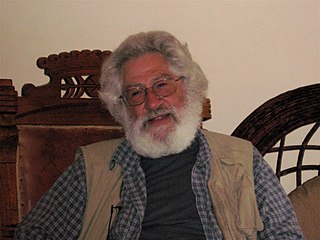A Quote by Francis Collins
It is interesting that the U.S. has this very strong proportion of the population that rejects scientific conclusions about the age of the Earth and about evolutionary relationships between species, including humans.
Related Quotes
I couldn't possibly tell you. But I would say be very careful with your suppositions. People are so quick to jump. That's what I love about playing the character. People are so quick to draw conclusions about who he is. The whole thing about Loki is that he's dancing on this liminal line between redemption and destruction. Just be very careful about drawing conclusions based on what you see.
There is enough for everyone to have what they need without exploitation. Adequate distribution of resources, including education, without violence can lead to a sustainable system that doesn't stress the ecosphere. Alternately, continued violence feeds population surges and hoarding the products of exploitative extraction, which endanger the survival of our species. In short, if we want a future with humans on Earth, we've got to stop war.
It must be stressed that there is nothing insulting about looking at people as animals. We are animals, after all. Homo sapiens is a species of primate, a biological phenomenon dominated by biological rules, like any other species. Human nature is no more than one particular kind of animal nature. Agreed, the human species is an extraordinary animal; but all other species are also extraordinary animals, each in their own way, and the scientific man-watcher can bring many fresh insights to the study of human affairs if he can retain this basic attitude of evolutionary humility.
There are millions of different species of animals and plants on earth--possibly as many as forty million. But somewhere between five and fifty BILLION species have existed at one time or another. Thus, only about one in a thousand species is still alive--a truly lousy survival record: 99.9 percent failure!
It is an odd fact of evolution that we are the only species on Earth capable of creating science and philosophy. There easily could have been another species with some scientific talent, say that of the average human ten-year-old, but not as much as adult humans have; or one that is better than us at physics but worse at biology; or one that is better than us at everything. If there were such creatures all around us, I think we would be more willing to concede that human scientific intelligence might be limited in certain respects.
We have a very old conservation movement, particularly in the United States, which has focused on campaigns to protect endangered species: the spotted owl, the old-growth forest. But usually it stops there. To me, biodiversity is the full spectrum. Species conservation is not only about wilderness conservation. It?s also about protecting the livelihood of people even while changing the dominant relationship that humans have had with other species. In India, it?s an economic issue, not just an ecological one.
It's very interesting to think about the distinction with mind, which I just made in very general terms, but it can be made more profound when we think that there are many species, many creatures on earth that are very likely to have a mind, but are very unlikely to have a consciousness in the sense that you and I have.
The reduced variability of small populations is not always due to accidental gene loss, but sometimes to the fact that the entire population was started by a single pair or by a single fertilized female. These 'founders' of the population carried with them only a very small proportion of the variability of the parent population. This 'founder' principle sometimes explains even the uniformity of rather large populations, particularly if they are well isolated and near the borders of the range of the species.




































